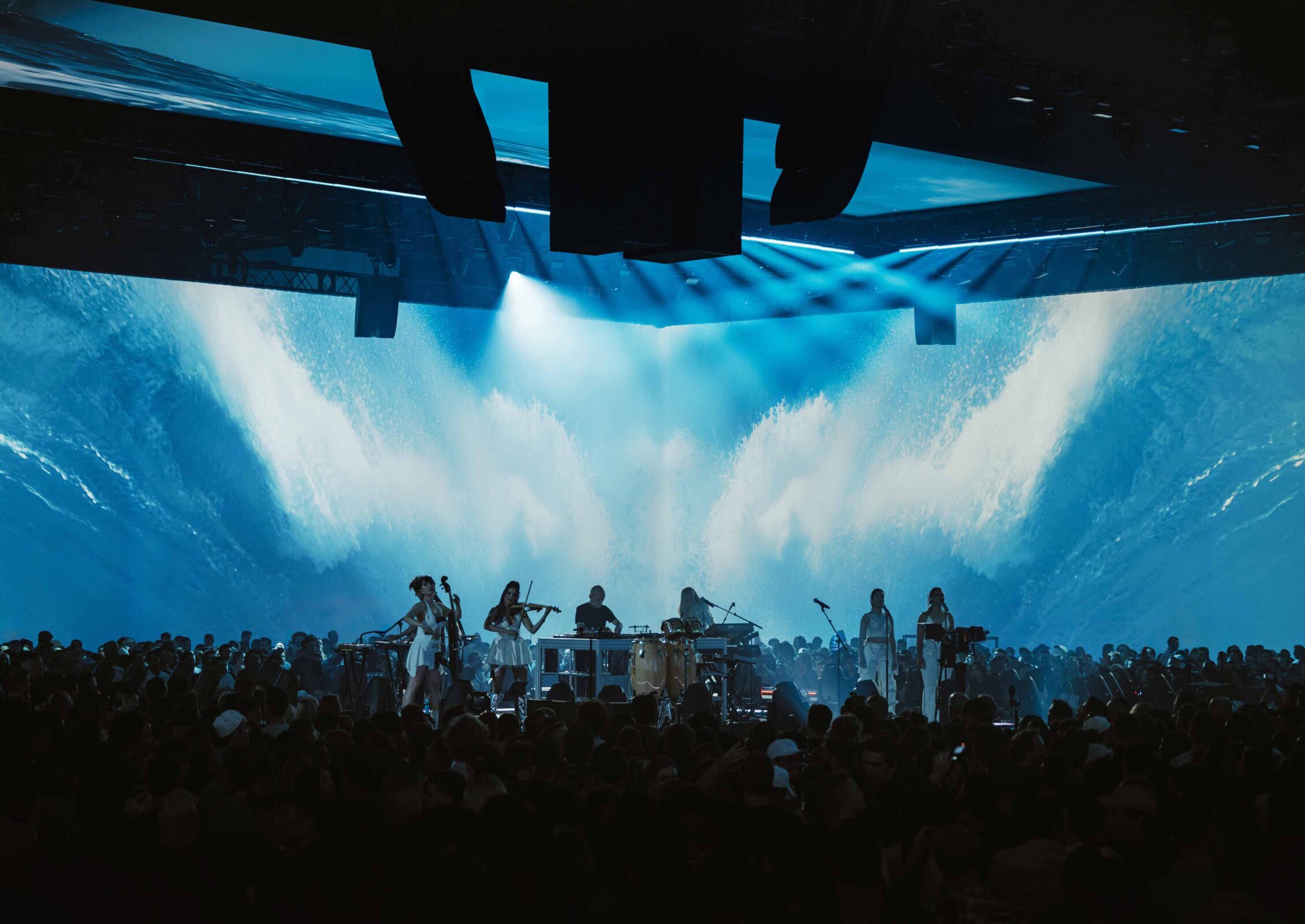- Words Notion Staff
Step with us into the wonderfully mind-bending experience that is Cercle Odyssey.
There are few names in electronic music as spiritually charged as Moby. And few live experiences as otherworldly as a Cercle production. So when the two met under the arching embrace of Cercle’s Odyssey installation – the world’s first immersive, nomadic 360-degree concert space – something extraordinary happened.
On May 9th, Moby emerged not atop a mountain or in a historic monument, but at the centre of a technological and sensory marvel – a ring-shaped structure nestled in a previously undisclosed location, wrapped in light and suspended in sound. This was not a nostalgic headline act or a greatest hits run. It was something far more elemental: a reintroduction to Moby’s music, reimagined in spatial form.
Powered by L-Acoustics’ L-ISA technology – a cutting-edge spatial audio system – the set didn’t simply boom from speakers. It enveloped. It spiraled. It spoke. You could feel the violins from ‘Porcelain’ sweep behind you, while the bass from ‘Go’ crept up like a gust at your ankles.
In this space, sound wasn’t linear – it was alive, architectural. The result was a deeply intimate recontextualisation of music that’s long lived in club memory and headphone reverie.
And this is where Cercle excels – turning listening into witnessing. Odyssey isn’t just a stage; it’s a pilgrimage site. A place where lighting, architecture, and music collapse into one shared heartbeat. Each performance in the structure is about presence, about the micro-emotions of being completely surrounded – not just by sound, but by the people feeling it with you.
For Moby – a veteran artist known for weaving the sacred and the synthetic – the experience felt like a homecoming and an evolution. His set wasn’t built for drop culture or algorithmic hooks. It was slow-burning, cinematic, patient. It asked the crowd to surrender to a pace we don’t often give ourselves anymore. And with L-Acoustics enhancing every subtle detail, you could hear – truly hear – the nuance in his decades-long sound palette.
From a cultural standpoint, this was about more than Moby. It was a signal flare for the future of live electronic music: genre-fluid, tech-augmented, emotionally rich. As more artists search for ways to deepen connection without diluting scale, Cercle’s Odyssey feels like a blueprint. One where the space matters as much as the setlist, and where immersion isn’t a gimmick – it’s the gateway.
At a time when festival formats blur into one another and tech often overwhelms the senses, Cercle and L-Acoustics have delivered something remarkably rare: subtlety at scale. And in Moby, they found the perfect guide – a sonic architect whose music has always longed for places like this.
This wasn’t just a performance. It was a reminder that when sound is treated as sculpture, and the audience as co-participants, live music becomes more than a show. It becomes ceremony.








